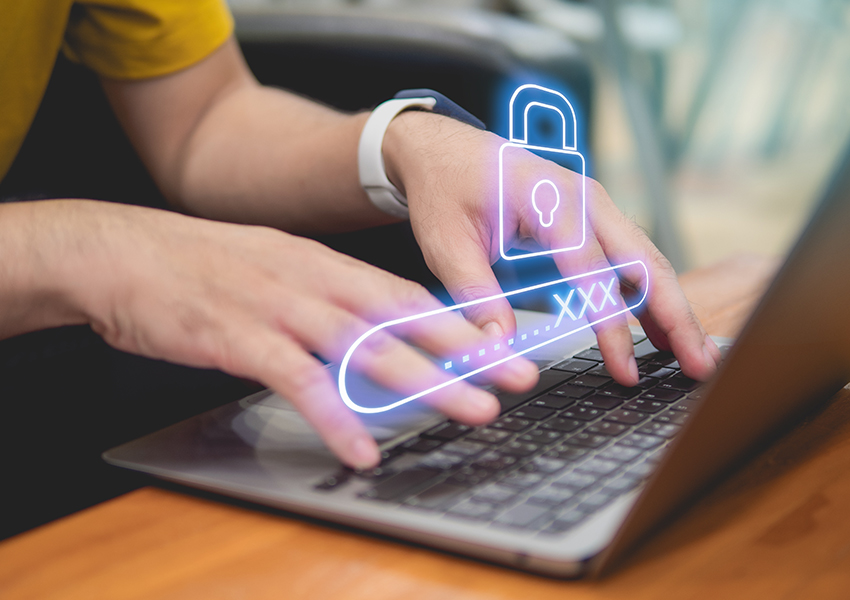There are no shortcuts when it comes to cybersecurity. While large enterprises have dedicated security teams and large budgets, small and medium-sized businesses (SMBs) often find themselves under-protected. With resources stretched thin, it’s easy to overlook aspects that don’t contribute directly to growth. It’s precisely this mindset that cybercriminals seek to prey upon.
SMBs may be smaller in size, but their data carries the same value as that of their larger rivals. Failure to prioritize security strategically can have devastating consequences. In the UK, nearly 30% of SMBs admit that a single attack could put them out of business.
The Biggest Hurdles Facing SMBs
1. Tight Budgets and Misplaced Priorities
Cybersecurity can seem expensive and complex. Many SMBs assume they don’t have the budget or technical capacity to implement meaningful security defenses. But the cost of doing nothing is significantly higher. Research shows that each year, enterprises spend an average of almost $1,200 per employee addressing successful cyberattacks. Even with smaller teams, this outlay is completely unsustainable for most SMBs.
2. Employee Mistakes and Insider Threats
Although digital systems continue to shape the business landscape, the human element remains the most significant cybersecurity risk for every company. Three-quarters of breaches involve some form of human error. Many SMBs cross their fingers and hope that their staff never fall for scams. However, with the rise of AI, distinguishing legitimate communications from malicious attacks is becoming increasingly complex every year.
3. Overlooking Basic Cyber Hygiene
Many SMBs often fall short on foundational cybersecurity practices. Failing to enforce password policies, neglecting software updates, or allowing unvetted device access creates significant vulnerabilities. Even seemingly minor issues, like keeping default passwords on routers, can open the door to substantial breaches.
4. Phishing and Web-Based Threats
Phishing remains the single most common attack vector. Research consistently shows that 90% of successful data breaches begin with a phishing email, highlighting the fundamental importance of preventing infiltration. Cybercriminals love to phish SMBs because phishing is effective. Phishing is a type of social engineering that manipulates employees and individuals into performing actions that benefit a cybercriminal.
From spoofed domains to social engineering tactics, attackers invest time and effort in researching SMB employees and tricking them into giving up credentials or downloading malware. This risk affects everyone, from a business founder to its latest recruits.
5. Relying on Third Parties Without Due Diligence
Many SMBs outsource IT management to Managed Service Providers (MSPs). However, MSPs themselves have become targets. If hackers can breach an MSP network, they can then target their downstream SMB clients. This trend makes choosing the right MSP to partner with more important than ever.
6. No Incident Response or Backup Plan
A strong incident response plan outlines who is responsible for what in the event of a cyberattack or data loss. It ensures faster containment, communication, and recovery. SMBs that fail to implement a response plan find themselves highly vulnerable. Whether it’s ransomware, accidental deletion, hardware failure, or even a natural disaster, data loss and operational disruption are almost inevitable without proper preparation. Over 40% of SMBs don’t have any cybersecurity incident response plan in place.
Did You Know?
cyber attacks begin with phishing
to seamlessly install PhishTitan
estimated global cybercrime cost
to stop & spot a phishing attack
What SMBs Can Do In Response
The good news for SMBs is that effective, affordable solutions to all the challenges listed above are within reach. With the right approach and tools, SMBs can build a strong cybersecurity foundation without breaking the bank.
1. Take a Risk-Based, Budget-Friendly Approach
As a starting point, SMBs should prioritize practical, affordable defenses that can immediately reduce risk:
- Multi-factor authentication (MFA): Add a second layer of protection to prevent unauthorized access.
- DNS-based content filtering: Block access to malicious websites before users even reach them.
- Automated backups: Ensure data is recoverable in the event of a breach or outage.
- Email filtering and phishing protection: Stop threats before they reach employees’ inboxes.


2. Make Employee Training Your First Line of Defense
Security Awareness Training (SAT) is crucial for small and medium-sized businesses (SMBs) because human error remains one of the primary cybersecurity threats, regardless of company size. With human error contributing to the vast majority of breaches, continuous security awareness training is essential:
- Use trusted resources like the National Cyber Security Centre’s ‘Cyber Aware’ campaign and the Cyber Essentials scheme, which provide practical guidance for businesses and staff.
- Develop and enforce an Acceptable Use Policy (AUP) that clearly outlines how employees should use company devices, email, and internet access in a responsible manner.
- Run simulated phishing exercises to help staff recognize the signs of malicious emails and test their ability to respond to real-world threats.
3. Maintain Strong Cyber Hygiene
Simple, routine practices are often the most effective in closing security gaps:
- Enforce password changes and encourage the use of password managers.
- Enable automated updates for operating systems, antivirus tools, and key applications.
- Run regular device security checkups.
- Use Endpoint Detection and Response (EDR) to monitor and protect all devices.


4. Stop Phishing Before It Starts
Strengthen your defenses against the top entry point for cyberattacks with both technical controls and employee vigilance:
- Apply DNS-based filtering to block access to harmful sites.
- Configure email filters to catch spoofed addresses, malware attachments, and suspicious links.
- Train employees to recognize red flags, such as unexpected attachments and urgent password requests.
5. Evaluate Your MSP and Vendor Security
If you rely on an MSP, remember that their security posture becomes part of yours. Ask the following questions to ensure your vendors are not a weak link:
- Do they use MFA internally?
- Do they conduct regular vulnerability scans and penetration tests?
- What access controls are in place for managing your systems?
Also, confirm that your MSP offers:
- A tested incident response plan
- Compliance reporting as needed for your industry
- User education and policy enforcement for your team


7. Build a Reliable Backup & Recovery Plan
A single incident can cripple an SMB without reliable backups. Make sure you retain clean, untouched restores by following the 3-2-1 backup rule:
- Maintain three copies of your data
- Store them on two different types of media
- Keep one backup stored off-site
You should also regularly test your recovery process to ensure backups are working smoothly.
Secure Your Business to Ensure Your SMB’s Future
You don’t need to be listed on the FTSE 100 to build a solid cybersecurity base. Many of the tools and practices outlined above cost little. Some, such as security awareness training, can be implemented for free by leveraging publicly available resources. Small steps quickly add up to a giant leap in risk reduction.
Protecting your data begins with understanding the risks that your small business faces. Preparing your staff and securing your systems will close existing security gaps. Choosing the right partners completes the journey from surviving to thriving.
Are you an IT professional seeking to protect your users, data, and devices? Learn more about TitanHQ’s affordable, SMB-friendly cybersecurity solutions by talking to a cybersecurity specialist today. Sign up for a free demo.

Geraldine Hunt
- EMAIL PROTECTION
- SMB
Get a Demo or Trial Today

